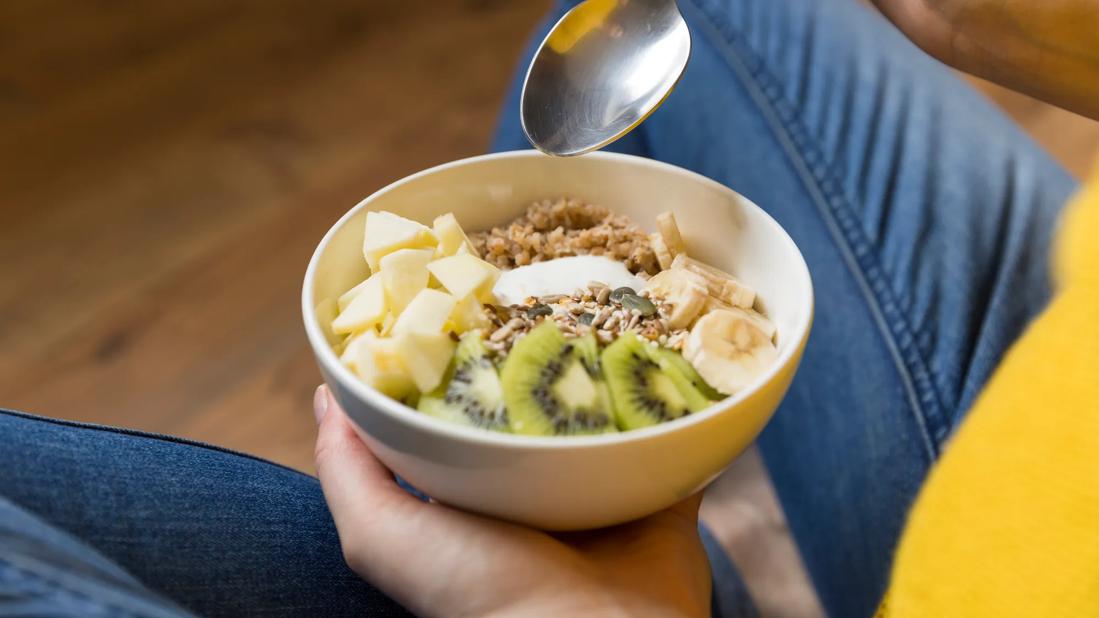Your body naturally produces the protein that’s essential for breaking down and digesting food

Sometimes, the food you love doesn’t always love you back — and in those cases, you may experience gastrointestinal problems, like an upset stomach, diarrhea or gas.
Advertisement
Cleveland Clinic is a non-profit academic medical center. Advertising on our site helps support our mission. We do not endorse non-Cleveland Clinic products or services. Policy
Could your body be struggling to break down food properly due to a lack of digestive enzymes? These types of protein naturally occur in your body to help with the breakdown of food into smaller molecules, allowing your body to extract nutrients, like carbohydrates, proteins and fats.
Gastroenterologist Alison Schneider, MD, helps us understand why digestive enzymes are so important.
Digestive enzymes break down the food you eat so your body can easily absorb its nutrients. Your stomach, small intestine and pancreas all make digestive enzymes. These are some of the major types:
“These enzymes are responsible for breaking down the major dietary components of the foods that we eat, so they’re vital to life,” says Dr. Schneider.
If your body is lacking in digestive enzymes, you may notice symptoms like stomachaches, diarrhea and gas.
But don’t get digestive enzymes confused with probiotics. While both support your gut health and aid in digestion, probiotics are live bacteria that help balance your gut microbiome. By keeping your gut healthy, they play an important supporting role in the work of digestive enzymes.
Advertisement
You can find digestive enzymes naturally in food like:
A few types of digestive enzyme insufficiency include:
Other conditions that could lead to difficulties include:
If your healthcare provider thinks you may have a digestive enzyme deficiency, they may recommend prescription enzyme supplements.
“Medicinal enzymes are combinations of amylase, protease and lipase that can help people with enzyme deficiencies digest food,” explains Dr. Schneider. “Typically, we can adjust the doses for each person’s clinical needs.”
You’ve probably seen digestive enzyme supplements in drugstores, health food stores or online. If you’re struggling with digestive problems regularly, you may be tempted to reach for one with the hopes that it will instantly knock out your symptoms.
But do over-the-counter (OTC) digestive enzyme supplements work?
“There are some studies that show treatment with digestive enzymes was well-tolerated and effective in the reduction of GI symptoms,” reports Dr. Schneider. “However, more large-scale trials are needed to fully establish their effectiveness for various conditions like functional dyspepsia and IBS.”
Another important factor? The U.S. Food and Drug Administration (FDA) doesn’t regulate supplements, stresses Dr. Schneider. So, it can be hard to determine how much of each enzyme is really in any particular supplement.
If you choose to take a digestive enzyme supplement, you may experience the following symptoms:
Dr. Schneider stresses the importance of talking to a healthcare provider before starting any supplement.
While digestive enzymes benefit your digestion, in most cases, you don’t need to worry about your body making enough.
But if you notice that you’re frequently dealing with digestive issues, like stomachaches and diarrhea, talk to a doctor. They can help determine the source of your belly troubles — and provide proven treatment options.
Advertisement

Sign up for our Health Essentials emails for expert guidance on nutrition, fitness, sleep, skin care and more.
Learn more about our editorial process.
Advertisement

People with PKU need to avoid high-protein foods, like meat, dairy, legumes and whole grains

The caffeine and natural acids in coffee may trigger acid reflux, but there are ways to lessen the effects

Olive oil is high in heart-friendly unsaturated fats

The tropical fruit is a good source of antioxidants and vitamin C

Alternating between periods of eating and fasting may benefit your health

High amounts of cholesterol and saturated fat in red meat may be linked to heart disease

This plant-based eating plan focuses on lowering cholesterol, making it a great companion to the Mediterranean diet

Research consistently shows that soy-based foods do not increase your risk of breast cancer

Even small moments of time outdoors can help reduce stress, boost mood and restore a sense of calm

A correct prescription helps your eyes see clearly — but as natural changes occur, you may need stronger or different eyeglasses

Both are medical emergencies, but they are very distinct events with different causes